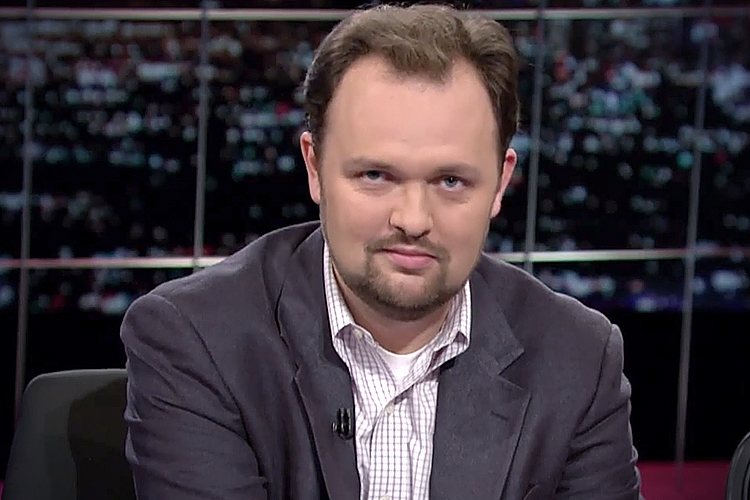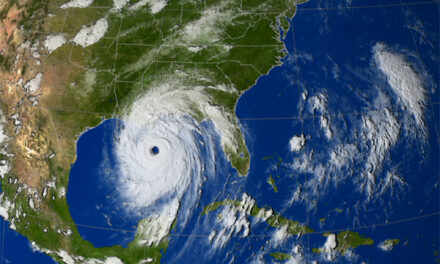Despite its provocative headline, I enjoyed Ross Douthat’s Why the Kirk Assassination Is a Warning to the Left editorial in the New York Times. After some annoying preliminaries about whether the right or the left is more inclined to celebrate political violence, Douthat gets down to the lesson he thinks the left can learn from this incident. And, when he does that, he describes things I can easily recognize in myself.
Before I get to that, though, I do have to say that his launching point is to go back to the last time we saw any real left-wing terrorism in this country, and that was in the 1970s. I was born in 1969 into a very left-wing environment, and I never knew people growing up who were supportive of political violence. I had to wait until I was older to even learn about the Weather Underground and other groups of the left that reacted badly to the failed utopia of the 1960s and committed serious crimes in the 70’s. I’m not saying Douthat is wrong about why they did it, but I do feel like they were a serious fringe back then and that their counterparts are so far a serious fringe now.
Still, disillusionment was an important element of how the left was feeling after the assassinations of the 1960’s and the election of Richard Nixon in 1968 and 1972. I think Douthat does a better job of describing the current disillusionment, but there are similarities.
To begin, the first wave:
Even if many assassins aren’t normal political actors, there are periods in American life when a wave of violence is linked to a specific ideological disposition. We saw this happen on the left within living memory — in the 1970s, when acts of far-left terrorism became an everyday feature of American life…
…Looking back on that era, left-wing radicalization seemed to follow from dashed utopian expectations — the peak of Great Society liberalism giving way to crisis and backlash, the belief that the New Left could renew and rule America yielding to the reality that Richard Nixon’s voters really were the silent majority. From this realization came a surfeit of apocalyptic thinking, radicalism flavored by despair, all of it worsened by the era’s social chaos and drug culture.
And now, the second:
Our moment is different, but there are echoes of the 1960s and 1970s in the recent experience of American progressivism. A belief in a nearly inevitable leftward arc of history, a guaranteed multiracial Democratic majority, giving way to the repeated shocks of the populist era. A period of extraordinary cultural influence, of revolutionary zeal joined to institutional power, that peaked in 2020 and 2021 and has been dissolving ever since. An insistence that the election of 2024 had existential stakes, that democracy itself was on the ballot, followed by resounding defeat. A backdrop of apocalyptic fears, fear of climate change above all, amid a technological transformation that has left many young people unmoored from family and friendship.
As a longtime observer of progressivism from the near outside, I have never seen it quite so anxious and adrift — so fearful of the future, so uncertain about its own goals, so existentially anxious and bunkered down. To the extent that polls showing a greater left-wing willingness to take joy in an opponent’s death ring true, it’s as especially toxic manifestations of this bunker mentality; they fit with the surveys showing that progressives are more likely to cut off friends and family over political differences.
And they also dovetail with the data showing greater depression and anxiety among young liberals and falling progressive birthrates relative to conservatives. It’s all part of the same darkening trajectory.
I wouldn’t write this the same way or with the same timeline. For me, the peak of optimism was definitely November 2008, after Barack Obama’s victory. And it was already somewhat tempered by Inauguration Day in 2009 because so much of the left had clearly decided to stay in the anti-establishment opposition despite finally beating down the Republicans, really for the first time since Bill Cliinton’s reelection in 1996. And, even then, the Gingrich Revolution in Congress was still in full force all the way until 2009.
After the outcome of the 2010 midterms, I never again could describe myself as long-term optimistic, although I never faltered in my belief that Obama would be reelected. I was optimistic about Hillary Clinton’s chances too, even if I made sure to slap around analysts like Nate Silver who initially thought Donald Trump had no chance to win the Republican nomination, let alone the presidency.
If you’ve been reading this blog over the last twenty years, you don’t need me to tell you about all the warnings I’ve sent out about where the right was headed. But Trump’s election in 2016 still hit me like a bomb. And it was even worse after I satisfied myself that I understood why it happened.
You can fairly call this the “repeated shocks of the populist era.” It’s also fair to describe this as a reckoning with the death of the “belief in a nearly inevitable leftward arc of history, a guaranteed multiracial Democratic majority.”
And I think the idea of Trump being reelected in 2024 was rightly considered by me and many others as an “apocalyptic fear.”
This, too.
How do you love your country when it’s governed by a man you hate? Can love and friendship coexist with profound political divisions? What makes life worth living if the course of history isn’t what you thought? If everything feels like power relations, and power has slipped from your fingers, where can you find the good, the beautiful, the true? What makes humanity a blessing on the world rather than a blight?
Douthat has really hit on the problem here. Progressivism is based in a fundamental optimism about the potential and direction of humanity. When then optimism doesn’t exist, there is a real sense in which the political ideology is incoherent.
But it’s actually worse than Douthat describes. There are two fundamental problems facing the American left right now. The first is that Trump is breaking things so thoroughly that they can’t be put back together.
The second is that he’s cutting off the electoral avenue for correction. The aggressive gerrymandering efforts in the lead-up to the midterms are designed to ensure the Republicans maintain control of the House even if the public overwhelmingly wants to give power to the Democrats.
The first of these problems leads to despair and despondency. But the second leads directly to violence.
The responsible thing to do when out of power is to organize to regain it through democratic means. But if you cut off the opportunity to regain power responsibly, you invite efforts to win it back irresponsibly.
The murder of Charlie Kirk is a good illustration of this. At the time of his death, Kirk was simultaneously confronted by two people who were very angry about his position on transgender people. The first person had done a bunch of research on mass shootings and was in the process of challenging Kirk’s assertion that transgender people are statistically more likely to commit violence. The second person had no idea that he might convince Kirk with factual data. He was aiming a hunting rifle at Kirk’s throat.
This is a pretty apt metaphor for what happens when the idea of progress is discredited and destroyed.
As the left looks around, they hope that someone will stop this carnage, but they are disappointed at every turn. Their electoral avenue is blocked. The Supreme Court is on the wrong side. The media is trying but are paying Trump tens of millions of dollars to settle frivolous suits. They are running scared. Elected Democrats have no power and can do little besides show their impotence. There’s no relief from tech companies, and our allies have their own populist pressures.
And, of course, the president, vice-president and their administration are now threatening to prosecute left-wing funders and organizations, casting them as terrorists.
At the moment, this is premature. The murder of Kirk was the result of one individual making a decision that he didn’t even share with ahead of time with his romantic partner let alone George Soros or leaders of the Democratic Party. But political violence from the left will grow if all other avenues of resistance are removed.
This is the part Douthat isn’t quite getting. It’s one thing to be depressed and question your beliefs in the face of a right-wing populist wave of political sentiment from the American electorate. The left has been through this before not only in the 1970’s but after the Reagan-Bush-Bush-Bush years. We responded by adapting and organizing, not with nihilism and terrorism.
If that’s not an option this time around, then that is not what is going to happen this time around.
This isn’t advocacy. It’s analysis.
Talking about the death of representative government can sound abstract, like it’s just about values. But it’s also about breaking the Social Contract and the rock-solid idea that our government is legitimate because it operates through the consent of the governed. For now, the Republicans can argue that Trump won the 2024 election and therefore has the consent of the people. But that argument is empty if the Republicans only maintain control after the midterms because they’ve redrawn the districts to ensure they cannot lose.
That’s a very dangerous thing to do, and it’s not something you can ask people to accept. Whatever conservatives feel is wrong or evil about progressivism, it’s an optimistic ideology that wants to operate within the system and according to the laws. Destroying that optimism and rendering it naive and stupid is not going to make people go away. It’s going to radicalize them, and it will lead to social disorder and violence.
Of course, most people won’t resort to violence. Most people will be as Douthat describes. They’ll be lost, desperately searching for “the good, the beautiful, the true” and wondering if life is worth living when there is no hope. That’s certainly where I am right now.
How about you?
.







This is what happened after 1877. Reconstruction ended and white southerners had enough power to violently suppress the nascent democracy that existed in their states in the brief period since the Civil War. In the north, the army (recently pulled out of the South) was used to crush the closest thing this country has had to a general strike, the Supreme Court gradually and systematically overturned pretty much all attempts at labor/democratic/civil rights protections, and the result was the most violent era of labor and political unrest (excepting the Civil War) in the nation’s history.
Again, not advocacy here; just analysis.